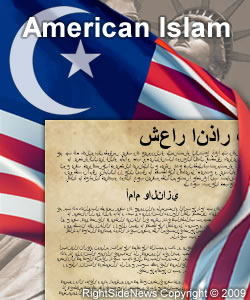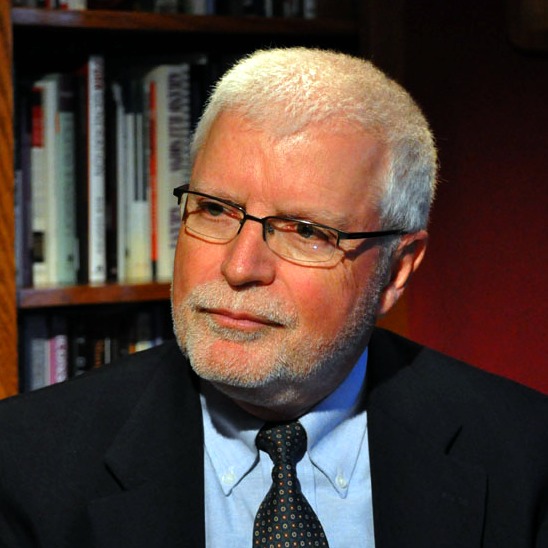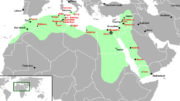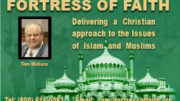Now is a time for remembrance, but it is much more than that. We need to know the roots of the tragic attacks on 9-11 that then led to the wars in Afghanistan and Iraq — and which continue today at great cost to life and to treasure. And we must learn how to prevent, if possible, and how to respond, if necessary, to any future attacks.
First and foremost, we must never forget the awful reality only 10 years ago of two planes crashing into the Twin Towers, and their fiery collapse as a horrified world watched. We wept, and prayed, and mourned, and raged at the willful murder of nearly 3,000 innocent lives – and more to follow in the fields of Pennsylvania and at the Pentagon. And we need to know, “Why?”
Is it possible that the roots go back nearly 1400 years to Mohammed’s march on Mecca? Or to the bloody crusades that pitted Muslims against Christians for nearly six centuries? Or to 1948 with the creation of an independent Israel and U.S. support for it? Or to the Iranian revolution in 1979, spawning jihadists like Osama bin Laden and his al-Qaeda network?
Beyond that, are we somehow to blame for these attacks on ourselves, as some might claim? Alternatively, as others believe, is it something in Islam itself — promoted in its mosques and madrasses — that incites these deadly attacks as part of a “grand jihad” toward global domination?
U.S. policy makers faced somewhat similar questions 35 years ago during the height of the Cold War. However, there was a sharp divide at that time between those who favored détente with the Soviet Union in hopes of finding a way to coexist in peace, and those who, on the other hand, believed it and its communist ideology must be confronted and defeated.
Again today, there is a divide between those who, on one side, believe we must apologize for American values, power, and prosperity; pull back from our historic support for Israel; regard the system of Islamic law and behavior known as Sharia to be merely a non-threatening spiritual path; and find a way to coexist even with militant jihadists who see the U.S. as their arch enemy.
On the other side are those who believe we must oppose Sharia as a totalitarian system that is antithetical to our constitutional form of government; confront groups like the Muslim Brotherhood that are trying to impose Sharia on us and on the entire world; hold fast to the Judeo-Christian principles on which America was founded; and help authentic Muslim moderates and reformers resist the jihadists who are trying to radicalize the American-Muslim community.
 Those on this side who are concerned about the potential growth of Islam and Sharia law in America can point to studies like one recently conducted by the Center for Security Policy in Washington. (TEAM B REPORT) It discovered that fully 81 percent of 100 randomly selected mosques in the United States featured Islamic texts that advocate violence. Moreover, in nearly 85 percent of those mosques, the leadership (imams or prayer leaders) recommended this literature for study by the congregations. Perhaps the most jarring finding in the study was that mosques containing the most severely violent materials were also the ones that were most heavily attended.
Those on this side who are concerned about the potential growth of Islam and Sharia law in America can point to studies like one recently conducted by the Center for Security Policy in Washington. (TEAM B REPORT) It discovered that fully 81 percent of 100 randomly selected mosques in the United States featured Islamic texts that advocate violence. Moreover, in nearly 85 percent of those mosques, the leadership (imams or prayer leaders) recommended this literature for study by the congregations. Perhaps the most jarring finding in the study was that mosques containing the most severely violent materials were also the ones that were most heavily attended.
In addition, another study released last month by the Pew Research Center found that seven of the 10 countries with the worst grades for government restrictions on religion are Islamic states, as are eight out of 10 countries ranked for social hostility involving religion.
This is not simply a question of theological doctrine. How we resolve this debate about Islam and Sharia will affect generations to come in our defense of freedom, just as it did in our prolonged battle with the Soviets and their communist ideology during the Cold War.
So, even at this time of remembrance for the victims of 9-11 and their families, and as we honor representatives of first responders, we must also focus on these difficult questions.
(Dean Welty is director of the Valley Family Forum)




